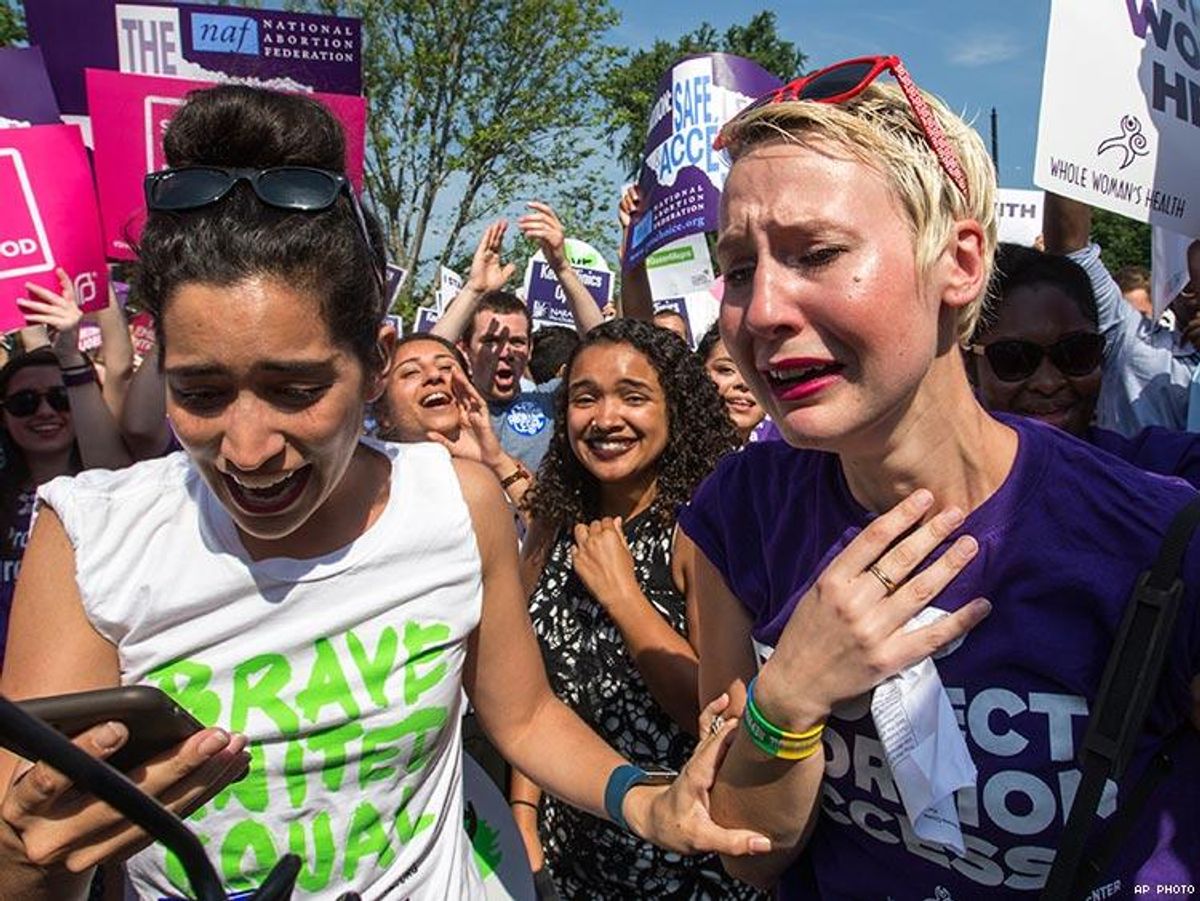The right to choose whether to bear a child is a fundamental human right, the U.S. Supreme Court ruled Monday, striking down a 2013 Texas law that would have closed a majority of the state's abortion clinics.
The law would have required abortion providers to have admitting privileges at area hospitals, which would have caused the closure of most state clinics, according to Rewire News, which tweeted this map following the decision.
About half the state's clinics had already closed because of the law, and if it would have been upheld, another nine would have ceased business, The Dallas Morning News reports.
The 5-3 ruling held that the Republican-backed law, House Bill 2, placed an undue burden on the those seeking abortions. The right to terminate a pregnancy is protected under the U.S. Constitution, established in the court's landmark 1973 Roe v. Wade decision.
Supporters of the Texas law claimed it was aimed at protecting women's health, but abortions are usually low-risk outpatient procedures. A study in Obstetrics & Gynecology estimated the risk of a woman dying after childbirth was 10 times greater than after an abortion, though home birth remains legal.
As news of the decision spread, the internet erupted with gifs, praising Justice Ruth Bader Ginsburg, also known as "Notorious R.G.B." for her outspoken support of women's rights.
In her opinion on the case she wrote "It is beyond rational belief that H. B. 2 could genuinely protect the health of women."
This celebratory gif began making the rounds:
LGBT leaders also supported the Supreme Court decision, likening the fight for reproductive rights to the fight for marriage equality, which also pivoted around the right to choose.
National Center for Lesbian Rights policy director Julianna S. Gonen praised the court's decision. "Whether choosing a life partner or determining whether to continue or end a pregnancy, the liberties enshrined in the Fourteenth Amendment are fundamental and cannot be legislated away by politicians," she said in a written statement. "Those clinics can now resume providing essential reproductive health care, as well as care to the LGBT community, which often turns to these providers as vital sources of compassionate and affirming care."
Candace Bond of the National LGBTQ Task Force concurred. "Abortion rights are LGBTQ rights, and today's historic decision reaffirms one of our most important constitutional freedoms. The opinion is an outright win for reproductive justice. Clearly the Texas law in question was not only morally wrong but was legally an undue burden," she said in a statement.
Justice Anthony Kennedy, considered a swing vote, joined the court's four liberal members, Ginsburg, Stephen Breyer, Sonia Sotomayor, and Elena Kagan, in the majority ruling. The three conservatives, Clarence Thomas, Samuel Alito, and John Roberts, dissented.

















































































